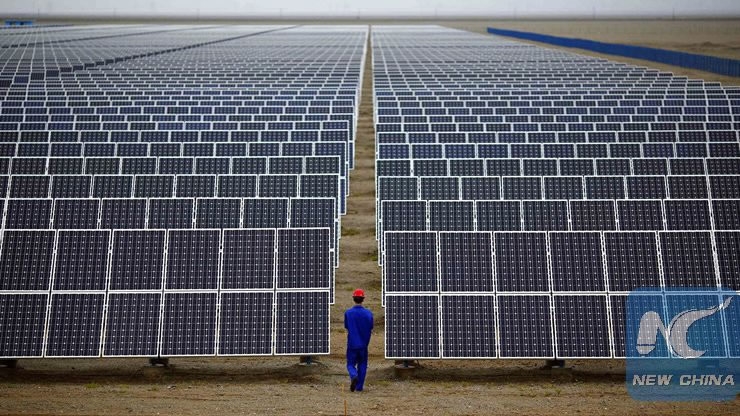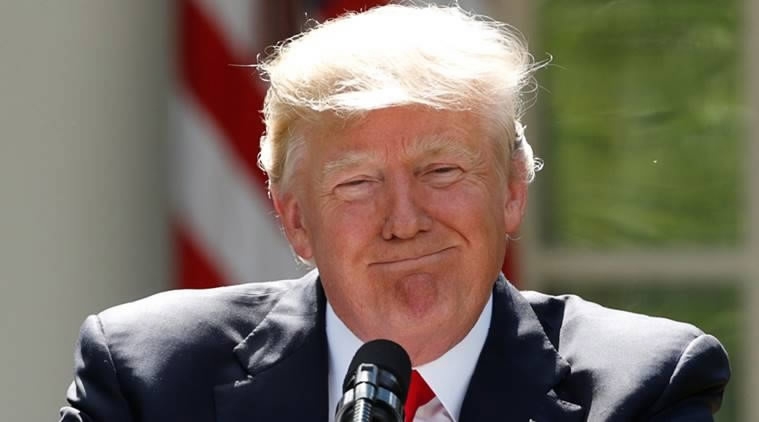
Tech & Sci
16:23, 12-Dec-2017
Paris climate summit to discuss finance sans US
Alok Gupta

There will be many firsts at the climate summit convened in Paris to discuss climate finance. It would be the first climate summit that won’t have any senior representation from the US.
On the eve of the summit, French President Emmanuel Macron announced the first winners of “Make Our Planet Great Again,” an attempt to counter Trump’s withdrawal from climate talks to “Make America Great Again.”
It will also be the first time that US President Donald Trump has not been invited to a global summit that would be attended by world leaders from around 50 countries. In a nutshell, this will be a first step towards fighting climate change without the US.
“The Paris climate summit offers a chance for concrete advances in the fight against global warming, even without the support of President Donald Trump,” World Bank President Jim Yong Kim said.
However, a small band of American leaders who refused to believe in Trump’s attempt to bring back coal has decided to participate in the summit.
California Governor Arnold Schwarzenegger and former New York Mayor Michael Bloomberg have confirmed participation in the talks.
Discussion on climate finance
The summit on Dec. 11 and 12 will discuss ways to gather financing for low carbon projects that help in reducing emissions and maintaining low-carbon in the atmosphere.
The Organization for Economic Cooperation and Development (OECD) predicts that nearly 6.3 trillion US dollars are needed annually until 2030 to meet global climate goals.
Governments have committed 100 billion US dollars per year from 2020; the massive funding gap is expected to be bridged by industry leaders or private sector.
Trump’s withdrawal from the climate change deal had dented efforts to counter climate change.
The climate summit, being held jointly by the French government, the World Bank and the United Nations, brings together more than 4,000 delegates to explore ways to gather funds for climate finance.
The World Bank has already pledged to increase its funding for climate-related projects by 28 percent by 2020. For 2017, it has earmarked 13 billion US dollars to fund 200 such projects.

US President Donald Trump pauses as he announces his decision that the United States will withdraw from the landmark Paris Climate Agreement, in the Rose Garden of the White House in Washington. /Reuters Photo
US President Donald Trump pauses as he announces his decision that the United States will withdraw from the landmark Paris Climate Agreement, in the Rose Garden of the White House in Washington. /Reuters Photo
Ironically, climate scientists in America were worst affected by the drying funds for research work. French President Macron allayed the fear of climate researchers by announcing “Make Our Planet Great Again” grants. Around 5,000 researchers, a majority of them from the US, applied for grants.
The 18 winners of the grants including 13 from the US were announced on Monday. “We will be there to replace US financing of climate research,” Macron said while announcing the name of the winners.
China’s crucial role
Beijing-based Global Environment Institute (GEI) claimed that China has a crucial role to play during the climate summit.
China’s 5 trillion-US dollar Belt and Road project is constructing infrastructure in more than 64 countries. "Interestingly, this would lead to emission that is three times China’s own emissions,” Kendall Bitonte, GEI’s external relation officer told CGTN.
“China has been trying to integrate green solutions into the Belt and Road, but more needs to be done.”
According to government figures, China is already 97 percent of the way towards the carbon intensity target, and 60 percent of the way towards its goal for non-fossil fuels consumption and forest coverage. It has also increased its forest stock volume by 2.68 billion cubic meters in the last decade.
During the United Nations Copenhagen Climate Summit in 2009, the Chinese government committed to decreasing its carbon intensity by 40–45 percent compared to the 2005 level by 2020.
Ma Jun, a special adviser to the governor of the People’s Bank of China during a conference in Paris on Monday pointed out how China is trying to attract green investment. “By 2020, all companies would be required to disclose information on their environmental impact,” he told Climate Home.
“The basic logic is: we need a lot of money for green investments,” Ma said.

SITEMAP
Copyright © 2018 CGTN. Beijing ICP prepared NO.16065310-3
Copyright © 2018 CGTN. Beijing ICP prepared NO.16065310-3